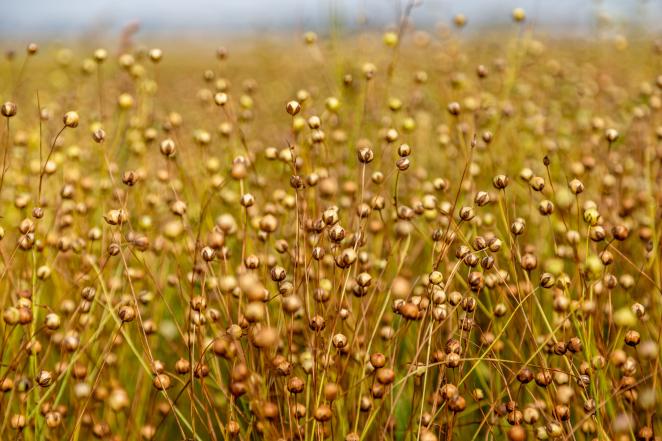The circular bioeconomy is gaining significant traction in the Lower Saxony region of Germany, thanks to the concerted efforts of key organizations such as the 3N Center of Competence Lower Saxony Network Renewable Resources and Bioeconomy e.V., Jade University of Applied Sciences, and the District of Heidekreis. These organizations are at the forefront of the Building Based on Biobased (BBoBB) project, working tirelessly to promote sustainable practices and innovations. Here’s an in-depth look at their roles, motivations, activities, and vision for the future.
3N Center of Competence Lower Saxony Network Renewable Resources and Bioeconomy e.V. The 3N Center of Competence is dedicated to promoting the development and use of sustainable products derived from renewable raw materials and biomass. Their role in the BBoBB project involves:
- Networking various stakeholders within and beyond Lower Saxony to foster bio-based value chains.
- Supporting cooperation between industry and research institutions.
- Providing comprehensive information along the value chain from cultivation to the use of renewable raw materials and bioenergy.
Jade University of Applied Sciences Jade University plays a critical role in researching and testing sustainable, biobased construction products. Their contributions to the BBoBB project include:
- Ensuring biobased construction products meet or exceed industry standards.
- Raising awareness and educating future generations of students about sustainable practices and solutions.
District of Heidekreis The District of Heidekreis, in collaboration with the 3N Competence Center, has been focusing on regional sustainability and bioeconomy initiatives since 2016. Their involvement in the BBoBB project includes supporting local implementation and development of bio-based innovations.

Motivations for Circular Bioeconomy
3N Center of Competence
3N is motivated by the urgent need to mitigate climate change and promote a bio-based economy. By fostering the material and energetic use of renewable resources, 3N aims to reduce reliance on fossil fuels and support the transition to sustainable production processes.
Jade University of Applied Sciences
Jade University is driven by its role as an educational institution committed to sustainability. They aim to ensure that biobased products become viable alternatives to traditional construction materials, while also educating and raising awareness among students about sustainable research approaches and solutions.
District of Heidekreis
The District of Heidekreis is focused on enhancing regional cooperation and innovation in bioeconomy practices. Their motivation lies in supporting local sustainability initiatives and contributing to climate protection efforts.
Focused Activities in Lower Saxony
The BBoBB project in Lower Saxony involves several key activities aimed at promoting sustainability and innovation:
3N and District of Heidekreis:
- Promoting the value chain from raw material to product.
- Supporting the development of new raw material energy crops and biobased products.
- Enhancing resource efficiency and climate protection through the use of renewable materials and decentralized energy supply.
- Fostering innovation through the development of new materials, knowledge transfer, and biorefining processes.
- Facilitating communication and cooperation among stakeholders.
Jade University of Applied Sciences:
- Testing and analyzing the application and characteristics of biobased insulation materials.
- Conducting long-term tests in existing Tiny Houses and dedicated testing facilities.
Importance of Scaling Up Biobased Value Chains
Scaling up biobased value chains is crucial for Lower Saxony to achieve its ambitious climate goals, including a 75% reduction in greenhouse gas emissions by 2030 and climate neutrality by 2040. The bioeconomy plays a central role in this transition by substituting carbon-intensive fossil-based materials with sustainable alternatives, thereby benefiting both the environment and the local economy.
Upcoming Pilot Projects
The BBoBB project includes several pilot initiatives aimed at demonstrating the feasibility and benefits of biobased materials:
3N's Pilot Projects:
- Initiating demonstration buildings in the region and collecting relevant data.
- Developing fiber-based biopolymer compounds for testing.
- Creating sustainable land use concepts involving cattail, hemp, and cup plant to reduce CO2 emissions.
- Facilitating transnational knowledge exchange and networking.
Jade University of Applied Sciences:
- Long-term testing of biobased insulation materials in Tiny Houses.
- Monitoring and testing in various sections of exterior walls using built-in sensors at their testing facility.
Vision for the Future of Circular Bioeconomy
The future of the circular bioeconomy in Lower Saxony looks promising, with a focus on resource efficiency, local and regional impact, and climate mitigation. The BBoBB project aims to:
- Minimize waste through reusing, recycling, and regenerating biological resources.
- Foster local production to reduce dependence on global supply chains.
- Promote bio-based products that sequester carbon and reduce emissions.
Overall, the circular bioeconomy is seen as a crucial pathway to overcome dependency on fossil fuels, support the local economy, and achieve climate targets.
Through the collaborative efforts of 3N, Jade University of Applied Sciences, and the District of Heidekreis, the BBoBB project is set to lead the way in sustainable innovation and circular bioeconomy practices in Lower Saxony.
